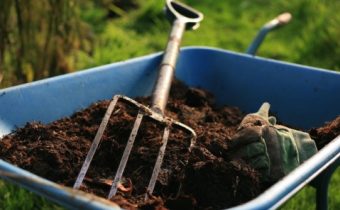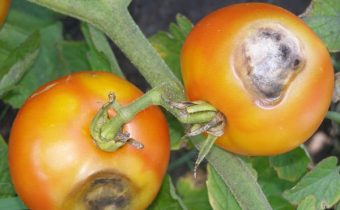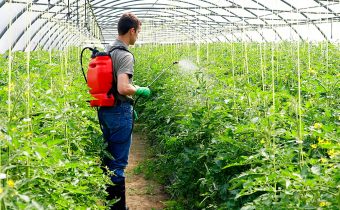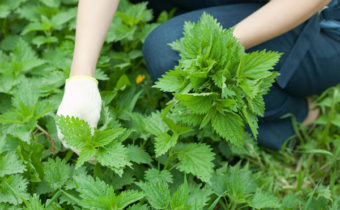Use of ammonia for tomatoes
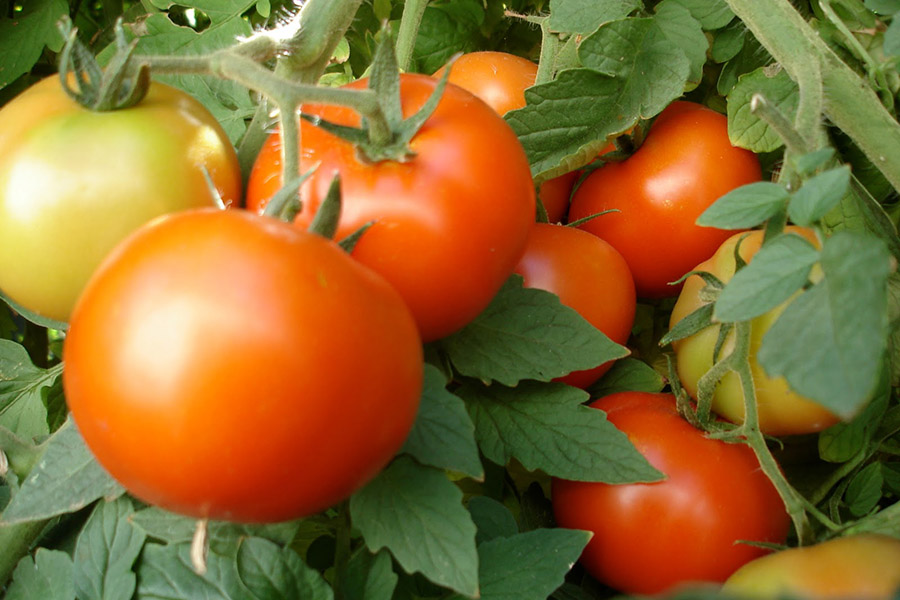
For the successful cultivation of tomatoes, gardeners use a variety of dressing. Among the many tools, a special place is occupied by ammonia. It is used both as a fertilizer and as an insect repellent. The use of ammonia for tomatoes is appropriate at all stages of development.
The beneficial properties of ammonia
Tomato development requires nitrogen. This substance is involved in photosynthesis and in the formation of green leaf mass. The element is also required for the full development of flowers and fruits.
Ammonia is a source of easily digestible nitrogen.
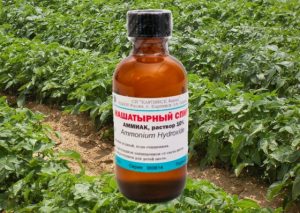
Advantages of ammonia:
- quickly compensates for nitrogen deficiency;
- protects against attack by pests (such as aphid, bear, fly, slugs, etc.);
- serves as the prevention of fungal diseases:
- the tool is available at any pharmacy and is inexpensive;
- to apply fertilizer based on ammonia - simply.
Types of fertilizers based on ammonia
Ammonia is used as a quick aid to weakened plants. As well as the prevention of pests and diseases. Ammonia based fertilizers can be used at all stages of growth and for various purposes. There are 2 types of ammonia feeding:
- watering the land;
- spraying (foliar treatment).
Dosage of the drug, depending on the problem:
- with acute nitrogen deficiency, use this solution: 80 ml per 10 l of water;
- for the prevention of nitrogen starvation: 50 ml per 10 liters of water;
- during the formation of ovaries: 90 ml per 10 liters of water;
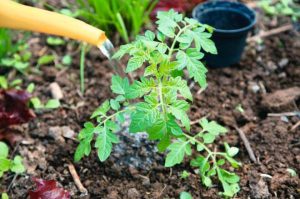
- to fight insects: 10 ml per 10 liters of water;
- for foliar treatment: 25 ml per 5 liters of water;
- for spraying against pests: 25 ml per 5 liters of water, with the addition of 25 ml of liquid soap.
In case of contact with skin, ammonia causes irritation, therefore, all work is carried out with gloves, and respiratory organs are protected with a mask or respirator.
Fertilizing with ammonia in different periods of growth
The first feeding with liquid ammonia can be carried out before planting the seeds. For irrigation, prepare a solution: 1 ml per 1 liter of water. The finished liquid evenly moisten the soil before planting seed.
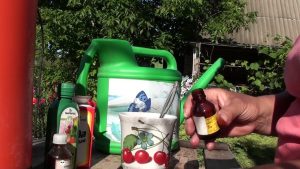
For fertilizer seedlings use this solution: 2 ml per 1 liter of water. Means is used for watering every 4th time. Through the use of ammonia, the seedlings grow strong, saturated green color.
After transplanting to the garden bushes continue to need nitrogen. The easiest way to prevent nitrogen starvation is to feed plants with ammonia. In 10 liters of water, add 2-3 ml of alcohol. Each bush is watered with 1 l of such funds. Between dressings withstand a pause of 2-3 weeks.
During the formation of ovaries, ammonia is also effective. Thanks to top dressing, tomatoes are formed strong and large.
Ammonia is also used to bake tomatoes. In the fall not to remove the green fruit, use this technique: 250 ml of apple juice is combined with 100 ml of baby shampoo and 100 ml of alcohol. The mixture of ingredients is dissolved in 90 l of warm water. The composition is used for spraying the fruit. Processed tomatoes are poured almost instantly.
Tomato pest control

At any stage of plant growth, foliar spraying can be used for emergency insect control. 2 tablespoons of alcohol is diluted in 10 liters of water. You can also add rubbed soap.The prepared solution is sprayed with leaves and stem.
The treatment is carried out in the evening or in cloudy and windless weather.
It is worth remembering that ammonia does not kill insects and their larvae, but only scares them.
Conclusion
Among the advantages of ammonia, gardeners especially highlight the fact that this substance contributes to the harmonious growth and strengthening of plants. Top dressing and processing of tomatoes using ammonia is a guarantee of the health of the bushes and a bountiful harvest.
Reviews
Eugene
For effective cultivation of tomatoes, you need to know the characteristics of plants at different stages of development. It is necessary to alternate feeding and use not only ammonia, although it gives good results. Through trial and error, I derived the following rules: root treatment of seedlings and bushes before flowering, and foliar treatment - twice in the summer.
Tatyana Alekseevna
Unfortunately, I learned about the benefits of ammonia for tomatoes only a few years ago. I especially liked to use spraying in pest control. Previously, often landing and attacked aphid, and slugs. Now these insects next to the tomatoes are not visible - it is very good! I recommend it to everyone - both for plant growth and against insects.


